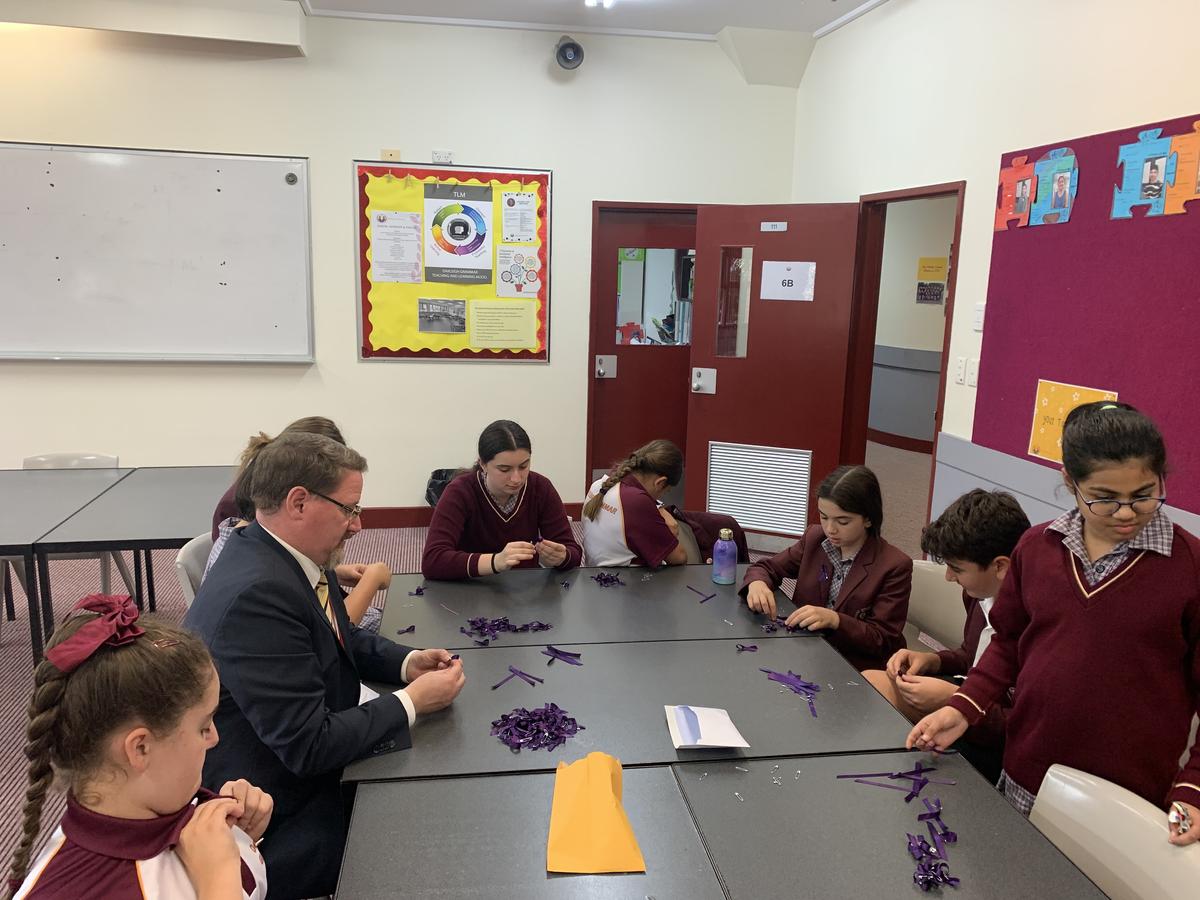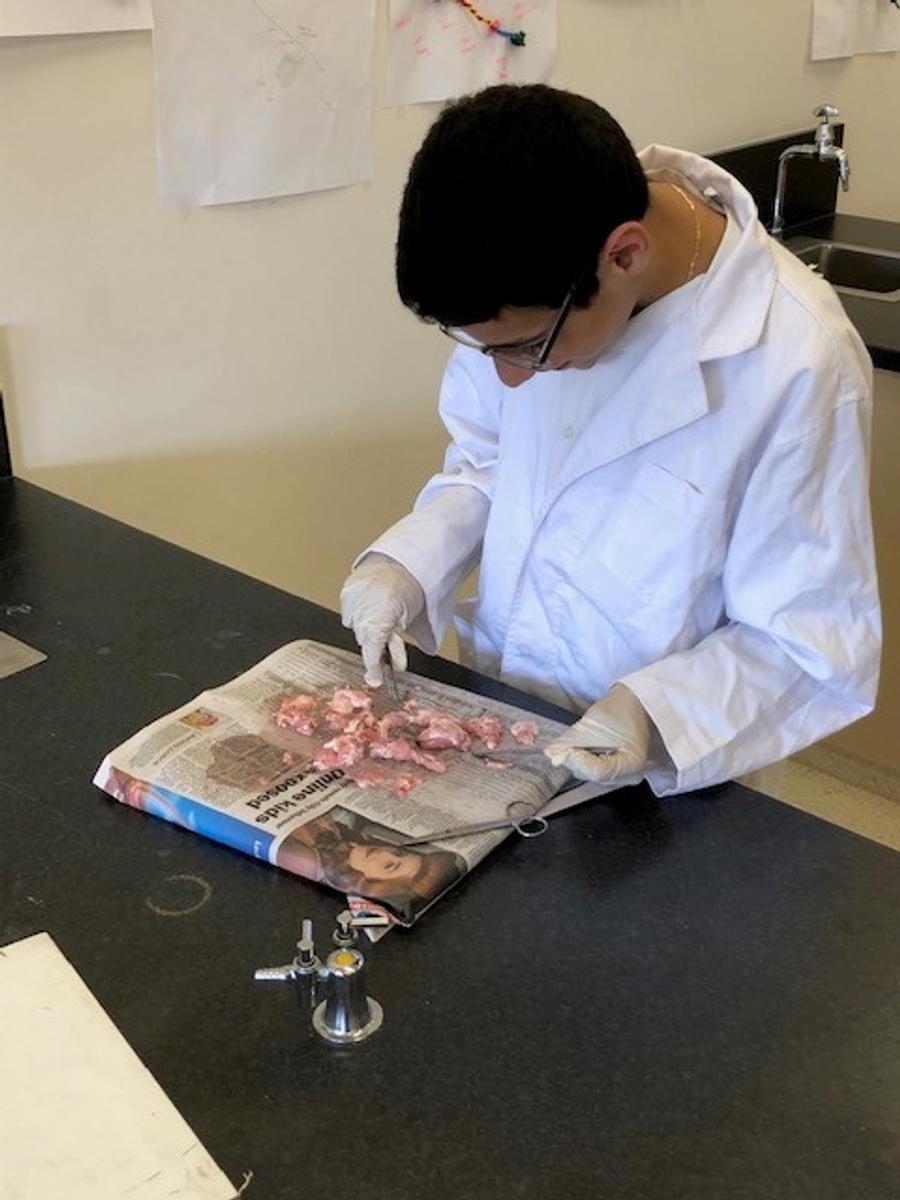
Faculty News
Careers
MICHELLE MASCARO
Careers Coordinator
As we move towards remote learning, e-counselling – (email counselling) and telephone counselling has never been more important.
Fortunately, the OG careers department have always offered this service to students/parents and guardians, especially in holiday periods, and will always be available.
Booking careers e- counselling and telephone counselling appointments will continue to be made the same way as face to face careers counselling appointments have always been scheduled, via our careers website using the following link.
At the conclusion of counselling appointments, students will continue to receive a copy of their counselling notes and recommendations via email, rather than the usual hard copy given to them in face to face counselling sessions. The weekly careers newsletters during term time will continue to be published and uploaded on our careers website, which can be found here. The careers newsletter links will also be emailed to students in Senior School, and via the OG Careers Facebook Page as per normal.
A careers classroom document will also be emailed to students providing information as to how students can continue accessing course/careers information virtually, in addition to chatting with myself via email. If you have any careers questions, or enquiries, please continue to email me at any time: MMascaro@oakleighgrammar.vic.edu.au
Wishing you all a safe, healthy, and restful holiday break.
Counselling
FIONA BAUDINETTE
Student Counsellor
Resilience
It was wonderful to see that so many parents were able to attend the Building Resilience in Children presentation recently. As a follow up, I have outlined the key points in this issue of the Grammar News.
What is Resilience?
Resilience is the ability to ‘bounce back’ after adversity, and is necessary to cope with life’s ups and downs. For many of us, resilience was largely built into our lives when we were children. Life was different then and we were afforded more independence. Now, due to many inherent safety concerns in our world, we need to monitor our children more closely. Gone are the days when we could ride our bikes for hours and come back at dinner time. This independence gave us opportunity to work through problems and handle challenges ourselves. This chance to succeed or fail, built resilience. Now as parents, we need to look for opportunities to help build resilience with our children, as it is not built into their lives as it once was. Resilience allows us to face challenges, learn from them and move on, rather than becoming stuck. This enables us to continue growing as individuals and improving ourselves.
Resilience comprises of many components, many of which interlink. The most important of these I feel is growth mindset. Our mindset determines our behaviour. A growth mindset is essential in developing overall positive wellbeing. Positive wellbeing enables us to approach challenges with optimism. It allows us to find the positive in the negative, which optimistic people do consciously. There are positives to be found in all challenges we face, no matter how big, if we look at the problem objectively. The ability to reflect and look for these positives helps us to move through the challenge and move on.
Our emotions are equally important. Resilient people can identify their feelings and control their emotional response. They have learnt to ‘feel, pause (reflect), respond,’ rather than ‘feel, respond.’ This allows them to see perspective in a challenge or confronting situation, which in turn develops flexible thinking. This is essential in finding solutions to problems, as it enables the person to view a problem from different sides.
When we can see things from a different perspective, we develop empathy, among other things. Empathy is the ability to recognise another person’s emotions and then be able to respond accordingly and appropriately. It is the act of putting yourself in someone else’s shoes, in order to understand their emotions in relation to our own. Resilient people given the nature of resilience, have many friends from different circles. This is because they place importance on friendships and maintaining friendships. Friendships help us to feel supported and valued and are an important factor in self-worth, and therefore resilience.
Our brains are continually changing and growing new neural connections, as we continue to learn and experience many things throughout our lives. Growth mindset, optimism, flexible thinking, emotional regulation and discussion with friends, all build new neural connections. Resilience is the outcome of this brain wiring.
Building resilience begins at the toddler stage and continues throughout life. Life experiences continue to grow and strengthen our thinking, which in turn continues to build our resilience. We teach resilience to our children through life’s challenges, allowing them to experience loss or failure where appropriate, teaching them growth mindset and by demonstrating it ourselves. It is never too late to teach resilience, or start building it!
Student Representative Council
NATASHA SPANOS
SRC Coordinator
Oakleigh Grammar celebrated International Women’s Day on Sunday the 8th of March. International Women's Day is a global day celebrating the social, economic, cultural and political achievements of women. This year’s theme was “Each for Equal”. An equal world is an enabled world. Each one of us can help create a gender equal world. Middle School students made hundreds of purple ribbons and sold them to our School Community to support the day, and celebrate each woman in the world.
Friday the 20th of March was the National Day of Action Against Bulling and Violence. The National Day of Action Against Bullying and Violence is an opportunity to bring the School Community together to send a powerful message that bullying and violence are not okay. The theme for this year’s Nation Day of Action was “Take Action Together”. It is important to not only acknowledge any bullying going on around us, but also to take action against it. Bullying can have some serious negative impact on not only the victim, but also to the person causing the bullying, and to bystanders. Everyone is different and everyone reacts to bullying in different ways, but the effects of it are still there and it can cause great harm if not taken care of accordingly.
Year 10 SRC members gave a presentation at the assembly on Tuesday the 10th of March, explaining to our School Community why it is important to take action against bulling! Students were encouraged to purchase a wristband for a gold coin donation, and wear it on the day to show how important to speak, even if your voice shakes.
Maths Enrichment
ANGELA KORLOS
Head of Math/Science
From our students:
"I find Maths enrichment class quite fun as it teaches me various ways to solve problems and helps my brain think in a different and more creative way." Paschalis Grigoropoulos 6A
"It is very enjoyable. I love the activities we have been doing; the questions challenge you as well as try to trick you, that’s what makes it interesting and fun." Nina Cucukovic 6A
"Enrichment class is fun. The questions are very different from my regular maths class." Maria 6A
"Enrichment class is fun and helpful with math work. I love going there and I don’t want to stop. The questions get you to think outside the box, which is really fun." Mason Jansz 6A
"Maths enrichment is so much fun as it challenges me to think. I like the different types of questions and puzzles. We think about different things in Maths. I enjoy it and I hope I can continue to do it. One of my favourites is when we have to listen carefully to do the right thing." Arkie Stathopoulos 6B
"This class is a little harder than normal Maths. We have to be careful when we read and try to understand." Vasilios Barbagiannis 6B
Try these sample questions:
- How many eggs in half a dozen dozen? (No, it’s not a typing mistake!)
- From a large square sheet of paper, a pair of scissors is used to cut off one of the corners. How many corners are left?
- What is 10 ÷ 12?
Answers:
- 72 eggs
- 5 corners-try it!
- 20












